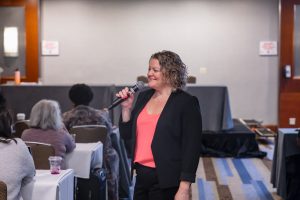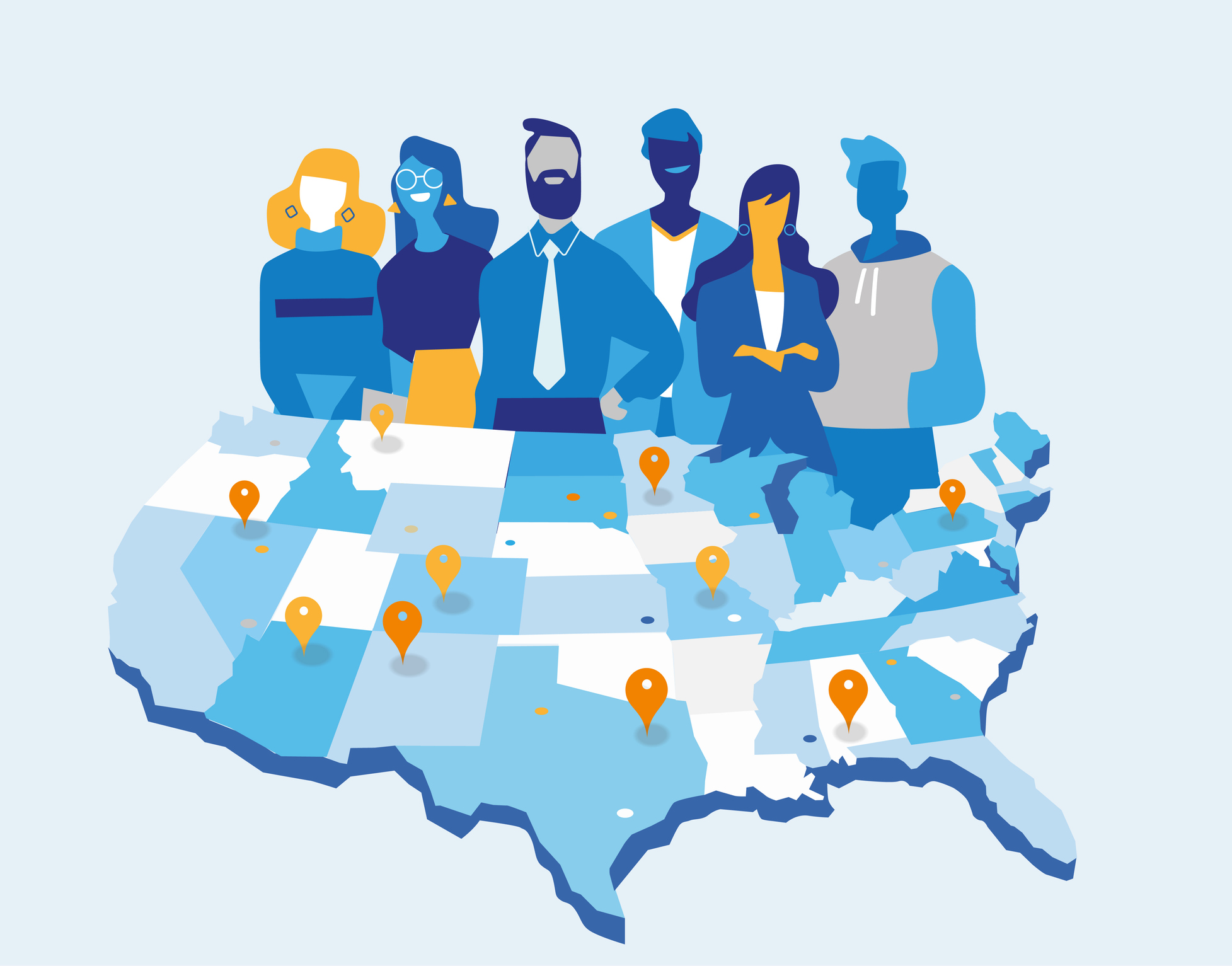By Faye Beard
Recently members of the National Association of Social Workers (NASW) showed up in astounding numbers to attend the virtual session of “One License, Many Doors: The Social Work Compact.”
Members were eager to learn more about multi-state licensure, practice mobility, and professional opportunities. Due to technical difficulties, some couldn’t access the webinar. However, those who registered for the Hour of Private Practice event can sign into their member accounts for a replay of the session.
Key Questions Answered
The session’s presenter Karen Goodenough, Ph.D., MSW, LGSW, and executive director of NASW’s Minnesota chapter, said there were a few main questions attendees wanted answered. “Is my state in the compact now? If not, will it ever be in the compact? When can I start using the compact license?”
So far, 29 states have joined the compact, Dr. Goodenough said. “We are at least a year out from the social workers being able to access a compact license in those states,” she estimates.
Dr. Goodenough is the chair of the NASW Licensure Taskforce and an NASW representative on the Social Work Interstate Compact. She recommends that social workers visit swcompact.org and check the map for the status of their state. Dark blue states depicted on the map have joined the compact. The light blue states have legislation pending. Then there are the gray states with no active legislation. “It may mean that the state has legislation or had pending legislation, but they are not currently in session,” Dr. Goodenough said. “And there are some states that aren’t compact-friendly and may never pass the legislation.”
Compact Will Expand Opportunities

Dr. Karen Goodenough speaks at the NASW National Conference in Chicago in June 2025.
The multi-state license would expand employment opportunities into new markets for social workers like Aarian Punter, LCSW, who is based in the New York Tri-State area. She already is licensed in New York and New Jersey, and she is currently working on getting her license in Florida and Maryland.
The compact originated with funds from the Department of Defense to support military spouses so they could relocate from state to state and continue their profession, Dr. Goodenough said. Now, there’s a focus on the continuity of care when clients relocate. “We’re thinking about students going off to college or snowbirds who go to another state in the winter,” she said.
Improving access to professional social work services is another benefit. “There are many places in our country where we don’t have enough social work services available,” Dr. Goodenough added. “Folks may live in a rural part of a state where there are not many social workers geographically near them, but now they will have access to social workers in 29 other states.”
Navigating State Laws and Ethical Practice
Dr. Goodenough explained that social workers have to be licensed in their home state—the state where they are physically present and the state where their clients are physically present. She also explained that practitioners can apply for the multi-state license only if their home state is a member of the compact. “If you want to move somewhere and that state hasn’t passed the compact, that’s going to be a problem,” she said.
According to the National Center for Interstate Compacts (NCIC), an interstate data system will “reduce application processing times” and other administrative burdens. It also will provide rapid access to information on licensees, investigations, and discipline of social workers.
Practitioners using the Social Work Licensure Compact to work in another compact member state must abide by that state’s laws and regulations, according to the NCIC. Dr. Goodenough encourages social workers to familiarize themselves with the regulations in each state where they plan to work. “What may be legal in one state may be illegal in another, particularly when it comes to abortion services or gender-affirming care.”
How Social Workers Can Support the Compact
NCIC advises social workers and other supporters of the compact to contact the state chapter or national office of their professional membership association and state legislature to advocate for the interstate compact.
“Social workers are great advocates. With NASW, we spend a lot of time at the capitols getting stuff done. Our state chapters have worked really hard to try to get this passed in as many states as possible, and that is still the goal,” Dr. Goodenough said, adding that states can continue to join even after the compact is enacted.
Faye Beard is a freelance writer based in New York City.




